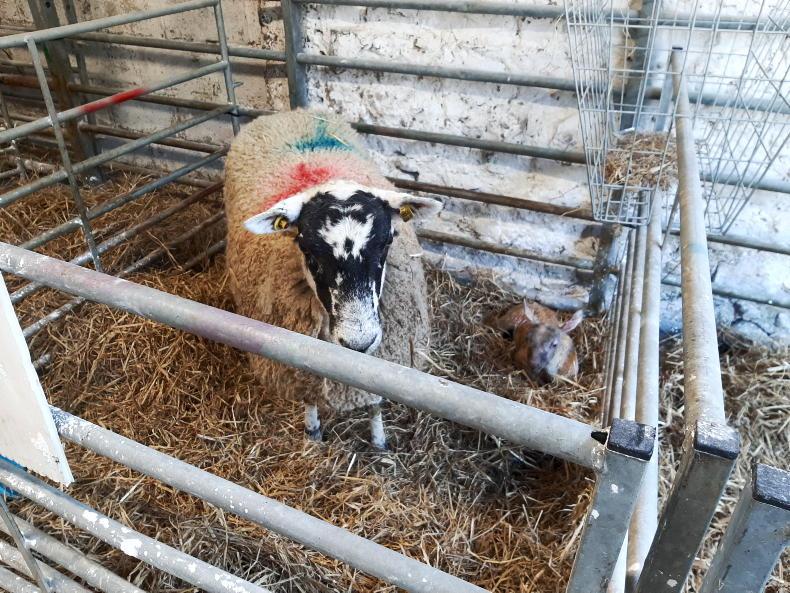Biosecurity measures: When it comes to limiting the risk of disease entering a flock, the best form of defence is to operate a closed flock policy.
The trading of pet or orphan lambs, foster ewes and in-lamb ewes is a considerable business that is increasing in intensity and will continue to do so until mid-season lambing peaks in March.
Farmers purchasing animals need to be aware of the risks that this poses for their flocks and take appropriate action.
Foster ewes should be isolated from the rest of the flock until such time as any disease risk has reduced to the minimum.
Foster ewes with an unknown health background or who have lost lambs in suspicious circumstances should raise alarm bells.
These are a particularly high risk, given abortion-causing agents could be responsible for the loss of lambs. In this regard, enzootic abortion is one of the major threats to be on guard for and as there are no visual warning signs for the farmer purchasing ewes, a good quarantine and health programme is essential.
In-lamb ewes should be lambed, where possible, in a separate area, unless there is a robust background history from the purchasing flock and you are confident that no risks are present. Foster ewes that are purchased should on no account be mixed immediately with ewes. These ewes should be isolated and undergo a quarantine period, with a similar approach prudent with purchased lambs. These animals should be clearly marked to allow for accurate decisions to be made on culling at a later stage in the year.
While on the topic of abortion, any case should be treated as a potential outbreak and investigated. Many flocks experience an isolated abortion case which can be traced back to possible injury or a ewe not carrying a high litter size to full term. Alarm bells should sound if the incidence rises above 2% to 3%. With regards submitting samples for laboratory investigation, the best chance of identifying infectious agents is where samples are submitted swiftly and if possible, foetal membranes are included.
Spectam scour halt: Last week’s information on the production of Spectam Scour Halt being ceased has raised some follow-on questions regarding where it can be purchased and alternative antibiotics. The product is a prescription only medicine, meaning it must be purchased from a veterinary practitioner. Regarding the comment that there are alternative antimicrobials that can be used in the face of an outbreak of disease, these products cannot be purchased routinely and must be prescribed by your vet on the basis of a demonstrated need being shown.
Dates for diary: The Teagasc lowland sheep conferences will take place virtually again in 2022 and follow a similar format to recent years of being split over two evenings. The first session on Tuesday 25 January will address rising fertiliser and feed costs and discuss strategies for reducing costs while still maximising productivity. There will also be a global sheepmeat outlook for 2022.
The second session on Thursday 27 January will focus on health, with the first of two presentations discussing the main causes of lamb mortality and ways to prevent these losses. The second presentation covers new veterinary medicines regulations being introduced in 2022 and the implications for sheep farmers. Both events start at 8pm. Registration is free at www.teagasc.ie/sheepcon22.






 This is a subscriber-only article
This is a subscriber-only article










SHARING OPTIONS: